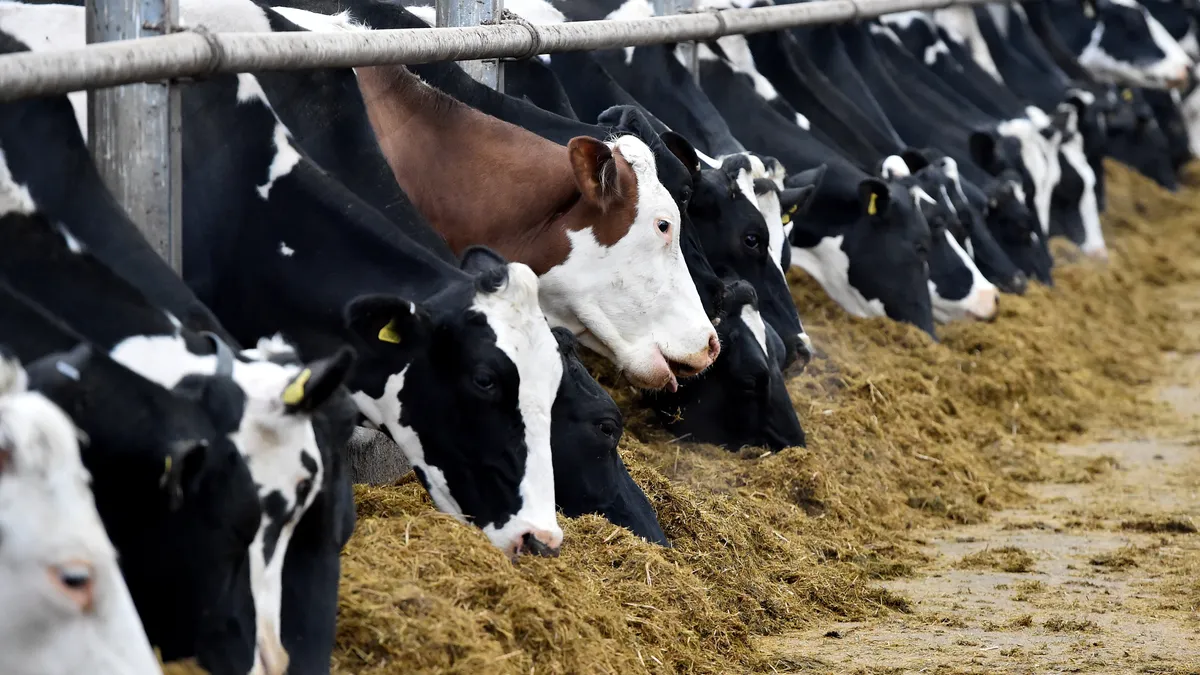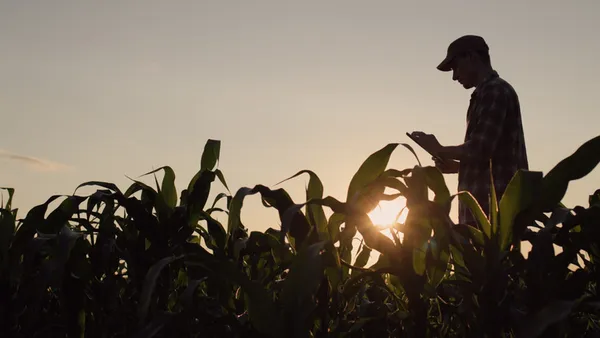More cases of highly pathogenic avian influenza are cropping up in dairy herds, federal regulators said, suggesting that the virus may be transmissible from cow to cow.
A dairy farm in Montcalm County, Michigan, that recently received cows from Texas is the latest cattle operation to test positive for the virus, the U.S. Department of Agriculture’s National Veterinary Services Lab confirmed Friday. Presumptive positive tests have also been received for additional herds in Idaho, New Mexico and Texas.
Earlier last week, the USDA identified avian influenza, also known as bird flu, in two dairy herds in Texas and two dairy herds in Kansas, marking the first time the deadly virus has spread to livestock. The strain of the virus found in Michigan is “very similar to the strain confirmed in Texas and Kansas,” the agency said in an update.
Even though initial reports of avian influenza in cattle indicate the virus was introduced by wild birds, new data suggests other pathways to infection.
“Transmission between cattle cannot be ruled out,” the USDA said.
Food and health regulators will continue to monitor the situation closely and have advised veterinarians and producers to practice good biosecurity, test animals before necessary transporting, minimize animal movements and isolate sick cattle from the herd, according to a news release.
Affected cattle have exhibited decreased lactation, low appetite, fever and other symptoms. While cases among humans in direct contact with infected animals are possible, the current risk to the public is low, the USDA said.
There is no concern about the safety of the commercial milk supply due in part to pasteurization, which would kill any trace of the virus. Dairies are also required to send only milk from healthy animals into processing, according to a news release. Milk from affected animals is being diverted or destroyed so it does not enter the human food supply.
The Michigan dairy tested positive for avian influenza after receiving cattle from an affected farm in Texas before that herd showed any sign of disease, according to the Michigan Department of Agriculture and Rural Development. The cattle did not have symptoms nor appear ill while being moved from Texas to Michigan.
“This case does reflect a lot of what is already known about this virus — namely, that it is highly contagious, it continues to be primarily spread by wild birds and contact with infected animals, and mammals can contract the virus,” Nora Wineland, Michigan’s state veterinarian, said in a statement.











